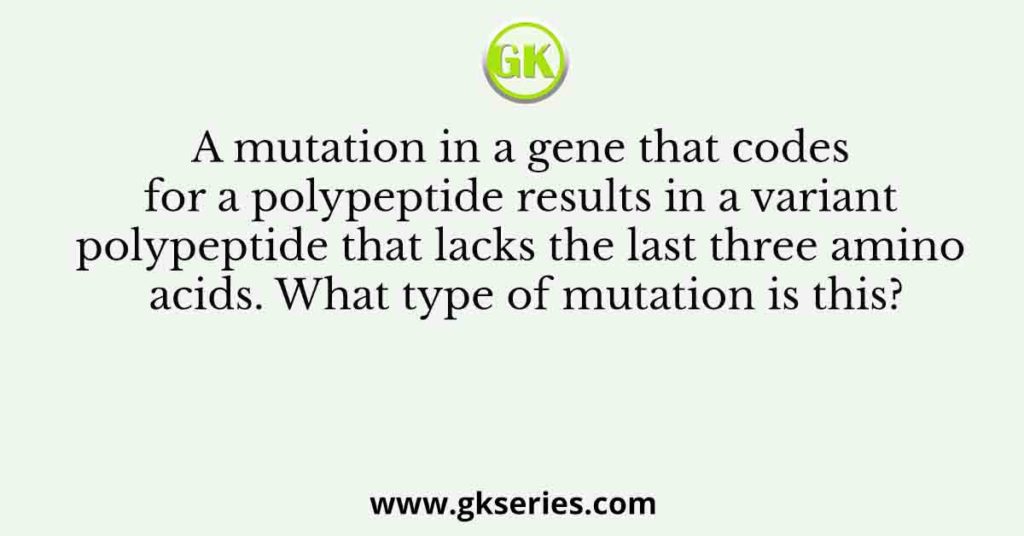A mutation in a gene that codes for a polypeptide results in a variant polypeptide that lacks the last three amino acids. What type of mutation is this?

Q. A mutation in a gene that codes for a polypeptide results in a variant polypeptide that lacks the last three amino acids. What type of mutation is this?
(A) Synonymous mutation
(B) Nonsense mutation
(C) Missense mutation
(D) Silent mutation
Ans: Nonsense mutation
Solution:
A nonsense mutation is a type of mutation in which a nucleotide change in the DNA sequence results in the formation of a premature stop codon in the mRNA. This premature stop codon leads to the termination of translation before the entire polypeptide is synthesized. As a result, the resulting polypeptide will be shorter and likely non-functional due to the missing amino acids.
In the scenario described, the mutation causes the gene to produce a variant polypeptide that lacks the last three amino acids. Since the mutation introduces a premature stop codon, it is consistent with a nonsense mutation.